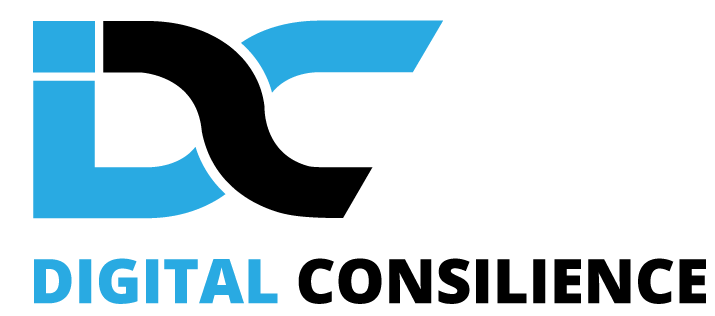What is Voice Search SEO?
Voice search SEO (Voice Search Engine Optimization) is the practice of optimizing your website content and metadata for voice search. This involves using keywords and phrases that are commonly used in voice search, as well as structuring your content in a way that is easy for voice search algorithms to understand.
Why is Voice Search Important?
Voice search is a rapidly growing trend, with about 27% of the global online population using it on mobile, and t is expected to become an increasingly important part of the way people search for information online. As a result, it is important for businesses and organizations to optimize their website content for voice search in order to increase the visibility of their website and improve the user experience for people using voice assistants.
There are several benefits to optimizing your website for voice search.
- First, it can increase the chances that your content will be selected as a result when people use their voice to search. This can help to increase the visibility of your website and bring more traffic to your site.
- In addition to increasing visibility, it can also improve the user experience for people using voice assistants to find information. By providing clear, concise, and relevant information, you can help people find the information they are looking for more easily and quickly. This can lead to higher levels of customer satisfaction and loyalty.
- Finally, you can take advantage of the growing market for voice search. As more and more people begin to use voice assistants to find information, businesses and organizations that have optimized their website for voice search will be well-positioned to capture a share of this growing market.
Schema
Implement Schema for Voice Search
What is Schema?
Schema markup is a type of structured data that you can add to your website’s HTML code to provide additional context and meaning to your content. By using schema markup, you can help search engines understand the content of your website and improve the way your website is displayed in search results, including for voice search.
How to Use Schema
To use schema markup for voice search, you’ll need to identify the relevant types of schema that apply to your business and the content of your website. There are many different types of schema available, including product schema for e-commerce websites, event schema for websites promoting events, and local business schema for brick-and-mortar businesses.
Once you’ve identified the appropriate schema for your website, you can add the markup to your website’s HTML code using the JSON-LD (JavaScript Object Notation for Linked Data) format. You can do this manually, or you can use a tool like Google’s Structured Data Markup Helper to generate the markup for you.
Sample Schema for Acme Restaurant
{
“@context”: “https://schema.org”,
“@type”: “Restaurant”,
“name”: “Acme Restaurant”,
“image”: “https://www.example.com/restaurant.jpg”,
“telephone”: “+1-212-555-1212”,
“priceRange”: “$$”,
“servesCuisine”: “American”,
“address”: {
“@type”: “PostalAddress”,
“streetAddress”: “123 Main Street”,
“addressLocality”: “New York”,
“addressRegion”: “NY”,
“postalCode”: “10001”,
“addressCountry”: “US”
},
“openingHoursSpecification”: {
“@type”: “OpeningHoursSpecification”,
“dayOfWeek”: [
“Monday”,
“Tuesday”,
“Wednesday”,
“Thursday”,
“Friday”
],
“opens”: “11:00”,
“closes”: “22:00”
},
“sameAs”: [
“https://www.facebook.com/AcmeRestaurant”,
“https://www.instagram.com/AcmeRestaurant”,
“https://www.twitter.com/AcmeRestaurant”
]
}
Why Use Schema?
It’s important to use schema markup because it can help search engines understand the content of your website and provide more accurate and relevant results for voice search queries. For example, if you have a restaurant and you use restaurant schema to mark up your menu items and business hours, it can help search engines provide more accurate and relevant results for queries like “What time does your restaurant open?” or “What’s on your lunch menu?”
In addition, using schema markup can help your website be displayed as a featured snippet or answer to a voice query, which can increase the visibility and credibility of your website to users.
Natural Language
Use Natural Language
It is generally important to use short, concise sentences when optimizing a website for voice-based search because this type of search is often used on devices with small screens, such as smartphones, and long blocks of text can be difficult to read on these devices. In addition, people using voice search are often looking for quick answers, so it is important to get to the point and provide the information they are looking for as efficiently as possible.
However, it is also important to make sure that your content is still comprehensive and covers all of the necessary information. It is a good idea to break up long blocks of text into shorter paragraphs and use subheadings to make your content more easily scannable.
Questions
Use Question-Based Content
It is important to use question-based phrases because people often use voice search to ask questions. By including questions in your content, you are more likely to have your content show up in their search results.
For example, if you have a website about hiking, you might include content that answers questions like “Where is the best place to go hiking near me?” or “What are the best hiking trails in the mountains?” By including these types of questions in your content, you are more likely to show up as a result when someone uses voice search to ask a similar question.
Wrapping Up
In conclusion, optimizing your website for voice search is an important part of ensuring the success of your business or organization in the digital age. By increasing the visibility of your website, improving the user experience for these users, and positioning your website to take advantage of this growing market, you can ensure that your website is well-equipped to meet the needs of the modern consumer.
Lance Harrell – Owner/SEO Specialist
